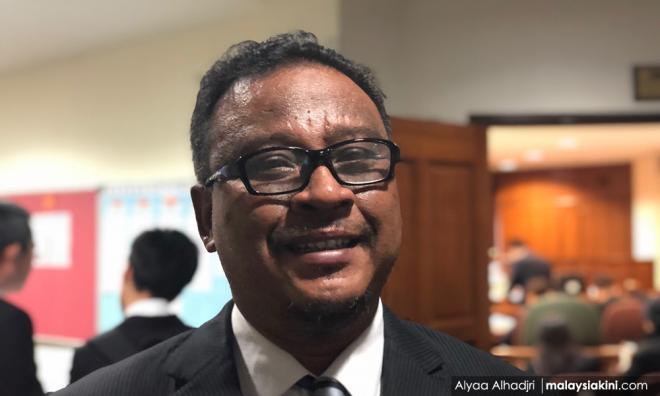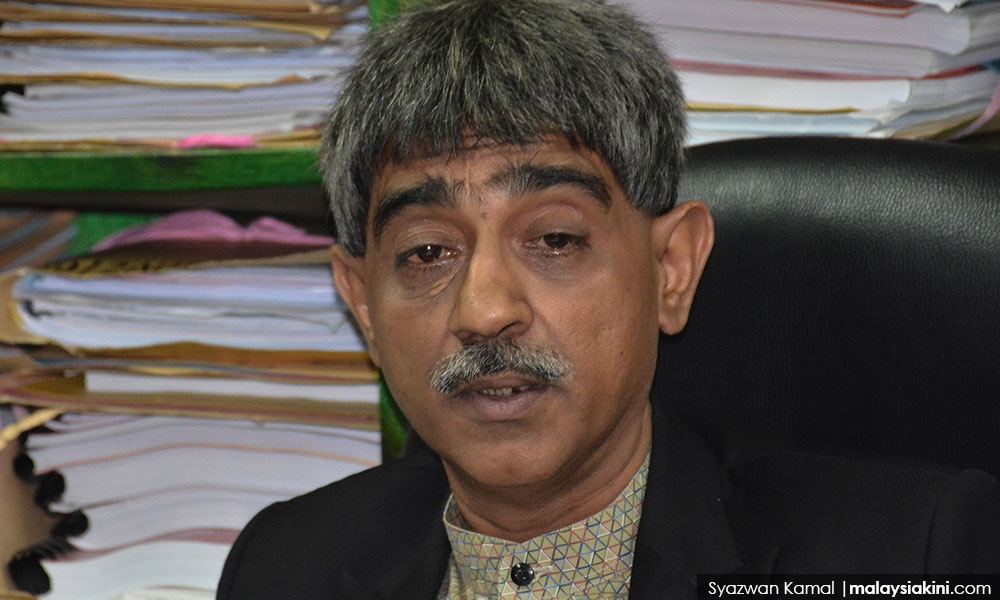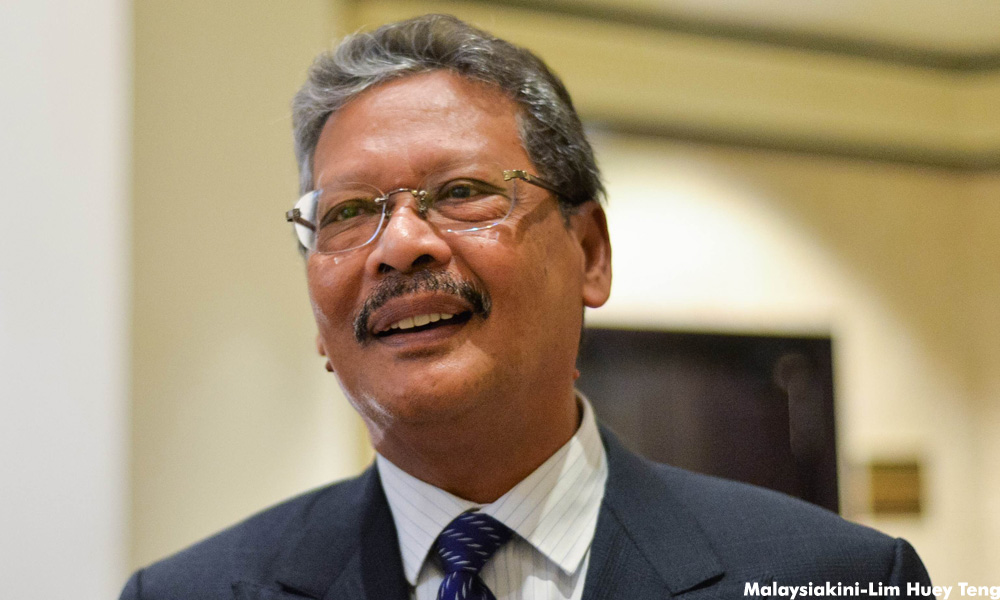
The High Court in Kuala Lumpur was told today that the Pardons Board gave the wrong advice that a royal pardon covered PKR president Anwar Ibrahim's sodomy conviction.
Lawyer Mohamed Haniff Khatri Abdulla submitted this during open court proceedings before judge Akhtar Tahir this morning.
Haniff is acting for lawyer Mohd Khairul Azam Abdul Aziz (photo, above) who filed a legal action on Feb 26 to set aside the royal pardon given to Anwar concerning his sodomy conviction and sentencing.
Khairul Azam’s legal action targets the Pardons Board’s advice to the Yang di-Pertuan Agong dated May 16, 2018.
On that date, Anwar was released from jail following the royal pardon concerning his sodomy case involving his former aide Mohd Saiful Bukhari Azlan.
Today’s High Court hearing is in relation to an application by Anwar and co-defendant Pardons Board to strike out Khairul Azam’s legal challenge against the royal pardon.

During proceedings today, Haniff Khatri (above) argued that the court should dismiss the striking-out bid and fully hear the main suit, in order to evaluate the submissions on multiple triable issues in the matter.
Haniff said this includes the issue of the allegedly improperly-formed Pardons Board, as well as the allegedly wrong advice given on the extent of the Agong’s power to grant pardon, among others.
The lawyer reiterated that they are not challenging the power of the Agong to issue a pardon but rather that the Pardons Board has given the wrong advice on the extent of the Agong’s constitutional power under Article 42 (1) of the Federal Constitution in granting pardon.
The Article states that the Yang di-Pertuan Agong has the power to grant pardons, reprieves and respites in respect of all offences which have been tried by court-martial and all offences committed in the Federal Territories of Kuala Lumpur, Labuan and Putrajaya; and the ruler or Yang di-Pertua Negeri of a State has the power to grant pardons, reprieves and respites in respect of all other offences committed in his state.
'Suit must be allowed to go for full hearing'
“We say that it is clear that the phrase ‘pardons, reprieves and respites’ means it must be limited to sentencing. It cannot go beyond that.
“The Federal Constitution does not say His Majesty can set aside a conviction,” Haniff said, adding that the suit must hence be allowed to go for full hearing rather than be allowed to be struck out.
In relation to the issue that the Pardons Board was allegedly improperly set up, Haniff argued that this was because on May 16, 2018, then solicitor-general II, Zauyah T Loth Khan, sat on it.
Haniff submitted that this went against Article 42 (5) of the Federal Constitution, in which the lawyer argued that then AG Apandi Ali was only empowered to only delegate his function as a Pardons Board member to then solicitor-general I Engku Nor Faizah Engku Atek.
The lawyer claimed that instead of Engku Nor Faizah, Apandi had instead delegated the power to Zauyah, who sat on the Board back then, when it was advising on Anwar’s royal pardon.

Haniff argued that Apandi (above) had wrongly exercised his power to delegate his duty on the Board to Zauyah, following Apandi himself having been asked to go on “garden leave”, earlier in May 2018 by the then Pakatan Harapan government.
On May 14, 2018, then prime minister Dr Mahathir Mohamad reportedly said that Apandi was asked to go on leave and that his (Apandi’s) duties would be assumed by Engku Nor Faizah.
Article 42 (5) of the Constitution states that the Pardons Board constituted for each State shall consist of the Attorney-General of the Federation, the Chief Minister of the State and not more than three other members, who shall be appointed by the Ruler or Yang di-Pertua Negeri; but the Attorney-General may, from time to time, by instrument in writing, delegate his functions as a member of the Board to any other person, and the Ruler or Yang di-Pertua Negeri may appoint any person to exercise temporarily the functions of any member of the Board appointed by him who is absent or unable to act.
In response, the Pardons Board’s legal representative, senior federal counsel Natrah Idris, argued that the Agong has properly exercised his constitutional power under Article 42 in granting the pardon to Anwar.
Natrah then applied to the court for additional time to prepare more in-depth submissions on the extent of the Agong’s power in granting a pardon. The court allowed this application.
Anwar’s counsel J Leela then submitted that the striking-out bid should be allowed because plaintiff Khairul Azam does not have a reasonable cause of action in the matter.
She argued that the main suit does not clearly state what right of the plaintiff had been infringed when the royal pardon was granted to Anwar, among others.
“The plaintiff here is a total stranger (to the issue of the royal pardon granted to Anwar). He has not shown how his right has been infringed,” Leela told the court.
At the end of the proceedings today, the High Court fixed Sept 21 for its decision on the application to strike out the main legal challenge.
The court also set Aug 21 for the legal teams of the Pardons Board and Anwar to file further written submissions on the issues of the extent of the Agong’s constitutional power in granting a pardon, and whether the Pardons Board was properly constituted in May 2018. - Mkini


No comments:
Post a Comment
Note: Only a member of this blog may post a comment.